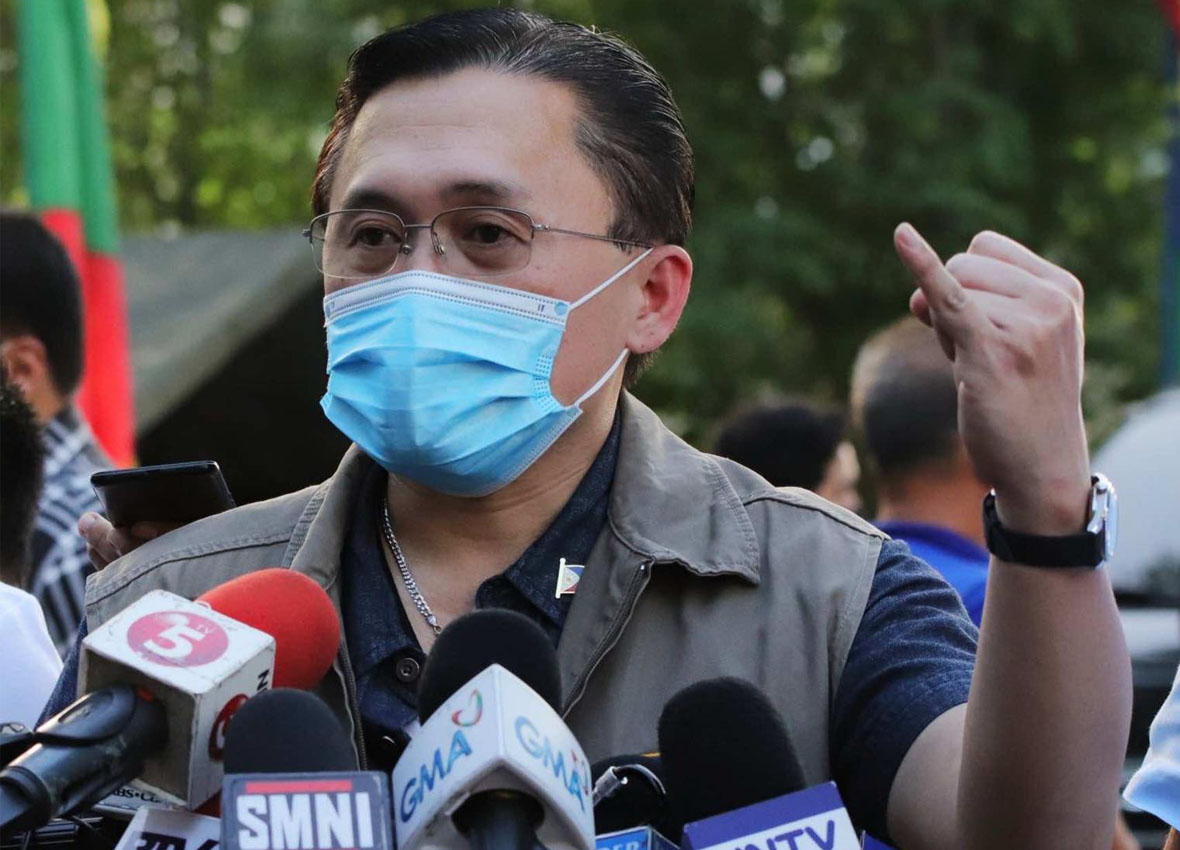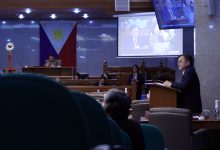While many Filipinos are unable to go back to work or resume their business operations because of the coronavirus disease (COVID-19) pandemic, Senator Christopher Lawrence “Bong” Go called on the government, particularly the Technical Education and Skills Development Authority, to provide more technical and vocational training and skills enhancement opportunities to Filipinos, especially displaced workers, to help them find other livelihood opportunities.
In a hearing of the Senate acting as the Committee of the Whole on Thursday, May 21, Senator Go brought up the issue to TESDA Director-General Isidro Lapeña, saying that many affected individuals need alternative livelihood opportunities given the adverse impact of the pandemic to the economy.
“Madami sa mga tao ang nahihirapan dahil sa kawalan ng stable na trabaho. Madami dito ang hindi tapos sa pag-aaral. Meron po ba tayong mga programa para sa training na libre para sa mga taong ito?” Go asked, adding that this issue is not just for those in Metro Manila, but for those who would be returning to their home provinces.
Last May 20, Go, together with other officials, sent off from Quezon City the first batch of Balik Probinsya, Bagong Pag-asa Program beneficiaries bound for Leyte.
Director-General Lapeña said that the agency will be accommodating these individuals so they can find better employment and livelihood opportunities in the wake of the crisis.
“Yes, your honor. We will be accommodating them so that they can land a job or livelihood after,” Lapeña said.
Earlier, Senator Go has urged TESDA to conduct technical and vocational education and training (TVET) programs that will be responsive to the needs of the local economy. Go said that these TVET programs are important in offering employment opportunities for Filipinos and, in turn, help them recover from economic losses after the pandemic.
The Senator has also earlier urged TESDA to coordinate with other government agencies, such as the Department of Trade and Industry and the National Economic and Development Authority as well as the local government units, to ensure that people will be properly matched with jobs according to their acquired skills.
Meanwhile, in the same hearing, Go also asked DTI Secretary Ramon Lopez on the total number of applicants who will be given assistance through the different programs offered by the department to support micro and small enterprises affected by the COVID-19 situation.
“DTI, you started accepting applicants para sa CARES program nyo, barangay program, for (micro, small and) medium enterprises, possible stimulus fund through SB Corporation… do you have total number of applicants that we aim to help?” Go asked.
The Senator is pertaining to the P1-billion COVID-19 Assistance to Restart Enterprises (CARES) program provided by the DTI’s financial conduit, the Small Business Corporation, to help cushion the negative economic impact brought by the current health crisis.
Go further asked, “Paano natin masisigurado na ang loans na ito ay gagamitin ng aplikante upang makapag-umpisa or ma-rehabilitate ang kanilang SMEs at di magamit sa iba? Meron ba tayong conditions imposed on applicants that will ensure the proper utilization of your support programs?”
Lopez explained that there is a network of credit partners involved in monitoring MSMEs and determine who will benefit from the program.
“Yes, your honor. Ang atin pong sistema ay katulong po natin, may network po tayo ng credit partners. Ito po yung mga micro finance institutions, rural banks, coop, na nakakalat nationwide. Sila po ang ating eyes and ears, at sila po ang nagde-determine kung sino po ang kailangang tulungan, nakatutok. At usually, ang nanghihiram ay usually part po ng association, market vendor association and all that,” Lopez said.
“Nagawa na natin kasi sa Pondo sa Pagbabago at Pag-asenso, so this is an extension… we are giving back to some of them who are affected by COVID-19 pandemic. At ang repayment rate natin dito sa existing program ay 90%,” he added.
“Ang borrowers po natin 115,000 na po and dito po sa programa ng COVID-19, given the limited fund na P1 billion, baka ang maabot lang ay 50,000 (enterprises), so kaya po natin i-cover ito. In fact, kulang pa nga,” Lopez explained adding that with this limit, they can narrow down the list of applicant enterprises to those who have good business standing.
“(With limited budget), masisigurado natin na makakarating ito sa gagamit talaga at ang pahihiramin po ‘yung may track record, more than 1 year track record at sigurado pong mamo-monitor,” he added.
According to DTI’s 2018 report, 99.5% of the total number of business enterprises operating in the country are MSMEs. Due to the COVID-19 health crisis, over half of the MSMEs today have stopped.
Earlier, Go has appealed to the government to also provide COVID-19 emergency financial assistance to workers of MSMEs. Presently, the government, through the Social Security System, is providing cash aid to the employees of these small businesses through the Small Business Wage Subsidy program.







Comments are closed.